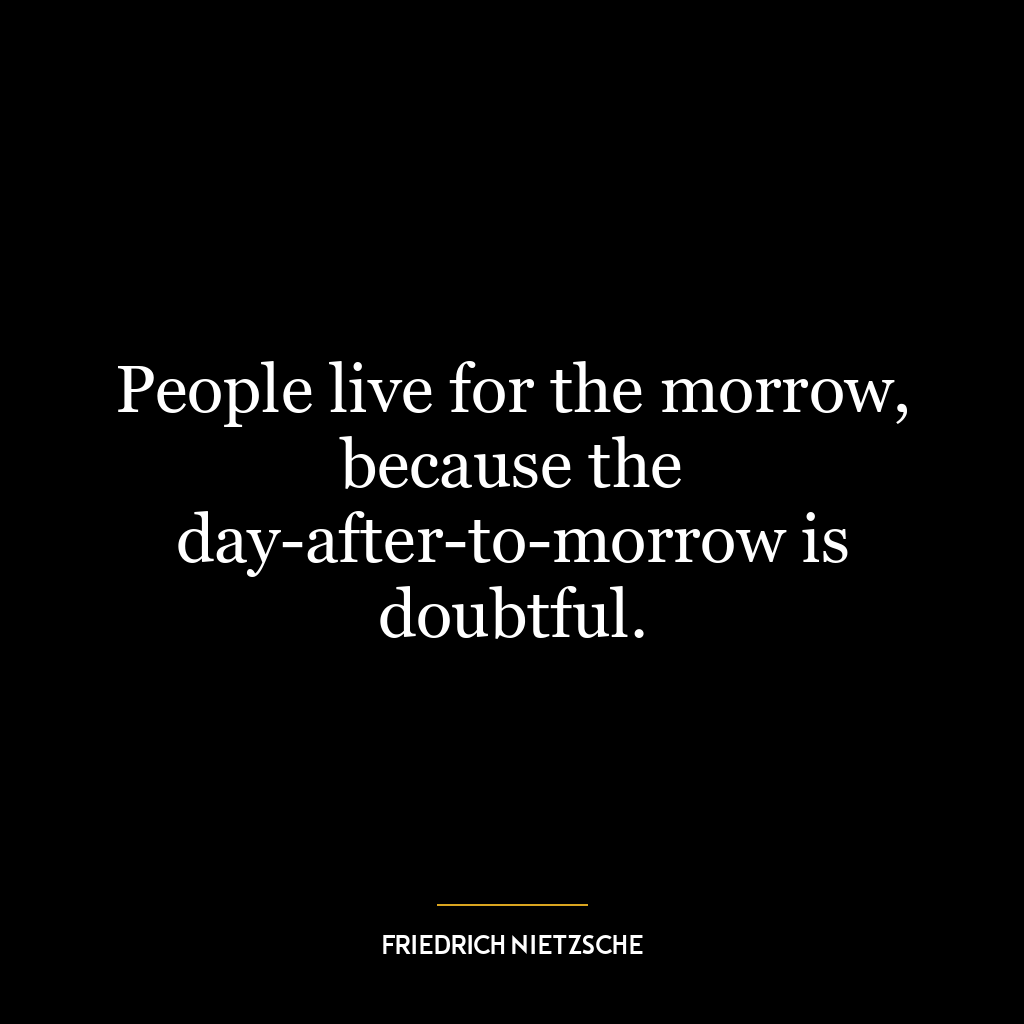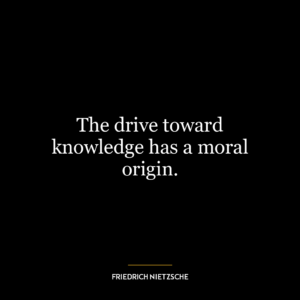People live for the morrow, because the day-after-to-morrow is doubtful.
This quote by Friedrich Nietzsche encapsulates the essence of human nature’s inclination towards short-term gratification and our innate fear of uncertainty. It suggests that people tend to live for the immediate future (the morrow) because the day after that (the day-after-tomorrow) is uncertain and unpredictable. The “morrow” represents the immediate future that we can somewhat control or predict, while the “day-after-tomorrow” stands for a more distant future that is beyond our immediate control or prediction.
This idea can be seen in many aspects of our lives. For instance, people often prioritize immediate needs or desires over long-term goals or benefits. This can be seen in our spending habits, where we often prefer to buy things that provide immediate pleasure or satisfaction rather than saving for the future. Similarly, in our careers, we might prefer to stick to a job that provides immediate security and satisfaction, rather than taking risks for potential long-term benefits.
In terms of personal development, this quote can serve as a reminder to not just focus on the immediate future but also consider the long-term implications of our actions. While it’s important to meet our immediate needs and desires, we should also strive to make decisions that will benefit us in the long run, even if they seem uncertain or risky. This could mean investing in our education or personal growth, taking risks in our careers, or making lifestyle changes that will benefit our health in the long run.
Furthermore, the quote underscores the importance of embracing uncertainty. Uncertainty is a fundamental part of life, and instead of fearing it, we should learn to accept and navigate it. This could mean being open to new experiences, learning to adapt to changes, and developing resilience in the face of adversity. In essence, while the “day-after-tomorrow” might be doubtful, it also holds the potential for growth, learning, and new opportunities.















